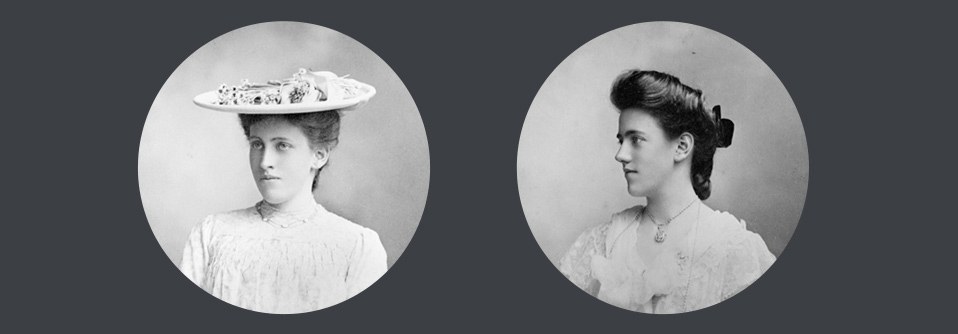Love, Money, and Art: The Davies Sisters and a Fortune for Wales

The story of Gwendoline (1882–1951) and Margaret Davies (1884–1963) re ects an age in Wales. They grew up in the late-Victorian years of industrial, political, and cultural combustion, their later lives mirrored in the wars and social upheaval of the rst half of the twentieth century. Their collection of remarkable paintings and sculptures, works of international standing, was their enduring achievement. This they gave to the people of Wales. Their saga is not, I think, widely known in their own country.
David Davies (1818–1890), their grandfather, was an unschooled Montgomeryshire farm boy whose ambition, faith, and energy moulded him into an heroic figure. His rock was Calvinistic Methodism. His wealth helped to modernize Wales and in considerable measure assisted the transformation of its culture. Davies was the eldest of ten children. He worked on his father’s Llandinam hill farm and prospered as a tree feller and sawyer, then as a reliable contractor who completed projects on time and to budget. In 1855 he became a railway engineer and built seven lines in Wales, most famously a link through the Cambrian mountains to the west coast. In 1864 he entered new territory as a Rhondda coal magnate. He delighted in his status as one of the landowning gentry. Finally, in 1884, he led Rhondda colliery owners in their battle to break the Bute monopoly in coal exports and built a new dock at Barry. Such was his celebrity that a newspaper offered photo portraits of him for five shillings.
or to access all content on this site, join today

For £35 a year you can access all lectures and articles on this site, attend lectures and receive our yearly Transactions
Filter by Volume
Filter by Subject
- 16th Century
- 18th century
- 19th century
- 20th century
- Abertillery
- Acts of Union
- Archaeology
- Architecture
- Arts
- Autobiography
- Bible
- bilingualism
- Biography
- Burma
- Business
- Cardiff
- chemistry
- Climate change
- constitutional
- contemporary
- Cycling
- Cymmrodorion Society
- David History
- David Jones
- Development Bank of Wales
- Devolution
- Dylan Thomas
- ecology
- Economics
- Education
- Edward Lhuyd
- eighteenth century
- Environment
- Film
- Folk Song
- Geology
- health
- Heritage
- Higher Education
- Historiography
- History
- History of Art
- History of Medicine
- History of music
- History of the Book
- history; History
- Horticulture
- Industrial History
- Intellectual History
- Iolo Morganwg
- Islam
- Jews
- John Nash
- journalism
- Language
- Law
- Law constitutional
- Legal History
- Legal Law
- Literary History
- Literature
- Liverpool
- Lloyd George
- London Welsh
- Male voice choirs
- Manuscripts
- Media
- medieva
- medieval
- Medieval History
- Medieval Literature
- medieval Poetry
- Military History
- Museums
- Music
- Myth
- Owain Glyndŵr
- Peter Warlock
- Philadelphia
- Poetry
- political
- Political History
- Politics
- prose fiction
- Railways
- Religion
- Religious History
- Science
- sixteenth century
- social
- Social History
- Sport
- Suffragette movement
- Swansea
- Tourism
- travel
- Tudors
- twentieth century
- Urban History
- Vikings
- Waldo Williams
- Wales
- war
- wellbeing
- Welsh Development
- Welsh development and investment
- Welsh Language
- welsh society
- Welsh writing in English
- Welsh; History
- Wild Wales
- women's history
- WW1
- WW2

